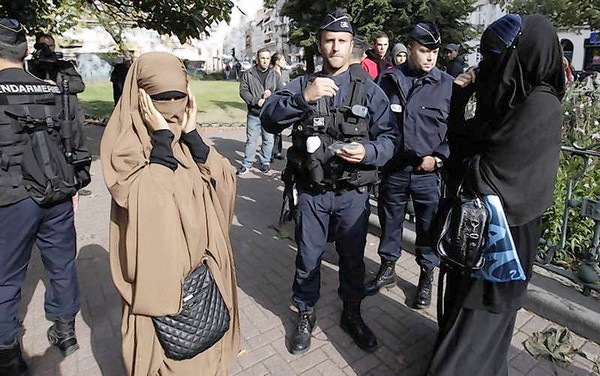Headlines:
- ‘French Islam’
- US Shouts More ‘Hot Air’ over Syria
- Pakistan confused on how to deal with impending Financial Crisis
‘French Islam’
France should impose a “halal tax” to pay for an association that would govern Muslims practicing in the country, a French think-tank has recommended in a report. The report entitled ‘The Islamist Factory’ has recommended French president, Emmanuel Macron, who wants to redefine relations between Islam and the state. Since the 1980s, French politicians have repeatedly attempted to formulate a “French Islam”, with the aim of managing the integration of immigrants. In its report “The Islamist Factory”, the Institut Montaigne highlights the Salafis are “gaining ground” among Muslims practicing in France, particularly among young people and France should construct its own “Muslim religious discourse” to challenge the Salafi discourse.
US Shouts More ‘Hot Air’ over Syria
As Russia pounds targets around South Idlib and Bashar al-Assad’s forces gather for an impending invasion. Speaking at the UN during the latest session on Syria’s Idlib Province, US Ambassador Nikki Haley warned Russia and Iran would face “dire consequences” if they continue to back a Syrian military offensive against rebels in the province. Idlib is the last major rebel-held territory in Syria, and taking it is seen as effectively ending the Syrian uprising. The US has insisted they oppose any moves into Idlib. Haley went on to say that Iran and Russia are “cowards interested in a bloody military conquest” and that the US continues to intend to respond militarily if any chemical weapons are used. President Trump has also suggested that a military response could happen if he believes the offensive is a “slaughter.” America has continues doing what it has done though the whole conflict. Criticise everyone, but do nothing against anyone. Threatening al-Assad and Russia for the use of chemical weapons, effectively means all other actions by them is perfectly fine by the US.
Pakistan confused on how to deal with Impending Financial Crisis
The newly formed Economic Advisory Council has suggested a more independent approach that involves extreme import restrictions to solve Pakistan’s debt crisis. Pakistan’s government can’t decide how to deal with its emerging financial crisis. China has been a major source of loans, but Islamabad is worried about falling into a debt trap. Prime Minister Imran Khan promised of not getting another bailout from the International Monetary Fund, but the option is apparently still available, now that the US has allegedly reversed its position by saying it will no longer obstruct Pakistan’s efforts to secure it. It remains to be seen if Imran Khans promise of ‘naya’ (new) Pakistan will materialise.

